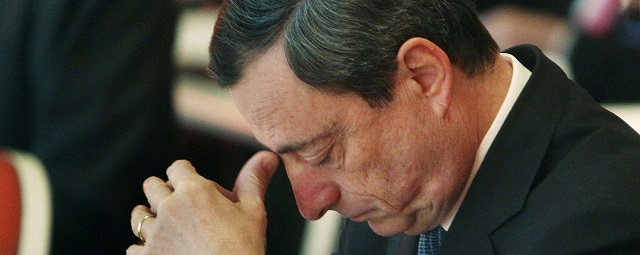BBB means good credit quality. BBB ratings indicate there is a low expectation of credit risk. The ability for the return of the principal and interest in a timely manner is adequate, although adverse changes in circumstances and economic conditions may affect this ability. It is the lowest rating within the category of “investment grade”.
In an apparent paralysis, many European governments bring forward future measures without implementing them. The euro zone is postponing or simply clarifying integration measures announced in the second half of last year and the ECB repeats like a mantra that the economic recovery will come while it lowers its forecasts. As for the investors, they blindly rely on the monetary authority umbrella should the crisis resume.
Fitch downgraded Italian debt due to the following reasons:
• The difficult formation of Government that can jeopardise structural reforms.
• Economic weakness with one of the worst behaviors in the area at the end of last year.
• Unsustainable levels in the medium term (without reforms) in the case of public debt up to 130% of GDP already this year.
The reasons for the negative outlook are:
1- A deep and long recession.
2- The challenging macroeconomic conditions that have increased distrust about the continuity of adjustment and reform measures.
3- A deterioration in financing conditions.
4- Possibility to reopen the euro crisis.
5- High uncertainty over economic policy.
As it was an “anticipated” decision, its first impact on the market has been marginal. And I mean the euro, which remains at levels of 1.30 USD. The President of the ECB was convinced after last week’s meeting that the adjustment process undertaken in Italy would not be affected by the political situation. Italy was one of the few countries that met the public deficit goal at levels of 3.0% of GDP after an adjustment of the structural deficit equivalent to 2.3 points in 2012. And it is indeed true that this year some measures have already taken that will allow another additional adjustment of 1.2 points. However, that doesn’t mean that the political ups and downs may not have impact the adjustment targets. Fitch mentions them in its decision to cut the deficit by three points: economic weakness, funding problems and worsening of the euro crisis.
It is interesting how investors have waived Draghi’s reiteration that the WTO must have counterparts in terms of adjustment, as well as his implicit request, again, to governments to take clear measures to solve the euro crisis. One of its consequences, market fragmentation, is complicated to solve only with monetary policy if there are still doubts about the credibility of the countries and the lack of European integration. Both subjects will have to pass an important test in the next two months. Countries with an excess of deficit will have to present this month multi-year deficit targets.
In the case of Spain we are already hearing rumors about the elevation of the recession forecast and its consequence in terms of greater deficit. The European Commission should consider in April if there are conditions to allow more flexibility in meeting the targets. France, Netherlands, Italy, Belgium and of course Spain, are some of the countries that are already asking to make use of this flexibility on the basis of strong economic deterioration. In the case of Spain, the adjustment of the structural deficit last year has been remarkable but this does not relent on the need to continue to reduce a structural deficit that in 2013 may be of 4.5 points.
Perhaps the Commission understands the economic downturn and offers time to reduce the deficit by 2015 up to 3.0% of GDP. But I am sure that in return it will ask new adjustment measures next year to prevent the structural deficit from worsen almost a point after the expiration of temporary fiscal adjustment measures applied in 2012, equivalent to almost a point. We’ll see the recommendations of the European Commission in April.
Again, all this brings three questions to the table: Has the ECB really done enough to fight the crisis? After all of the above, I believe there’s a possibility that the ECB will take more easing monetary policies measures like lowering interest rates, enable monetary stimulus or trigger an Outright Monetary Transactions plan or OMT (by request and compensatory measures, of course, except in case of an accident). Another question: Is the euro crisis finished? I don’t want to be pessimistic but I am afraid that it is still well on. An the last one: Should we be optimistic about the macroeconomic future? Sure, but let’s not live in a pathological optimism as some saw in Draghi’s comments. It is true that in many countries the new measures of adjustment (and reforms) will lead to a more uncertain and weak than anticipated recovery. Although rating agencies will be telling us about all this.






Be the first to comment on "Has the ECB really done its best to fight the eurocrisis?"